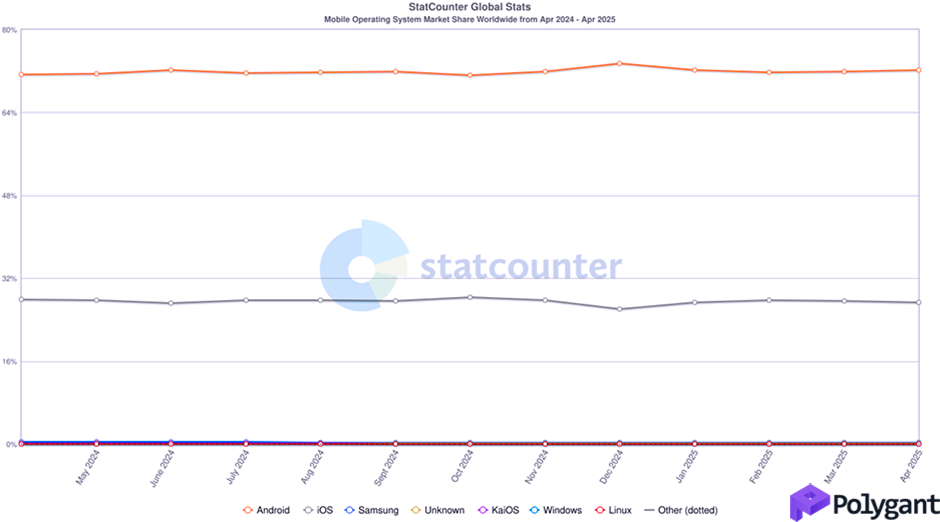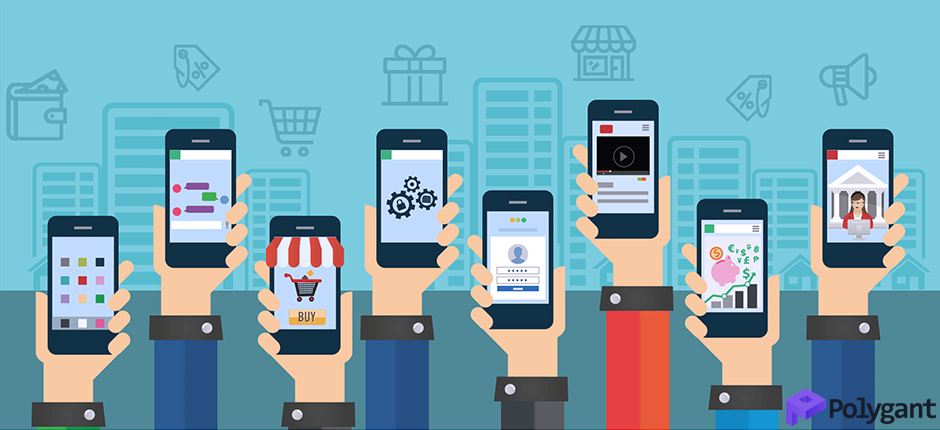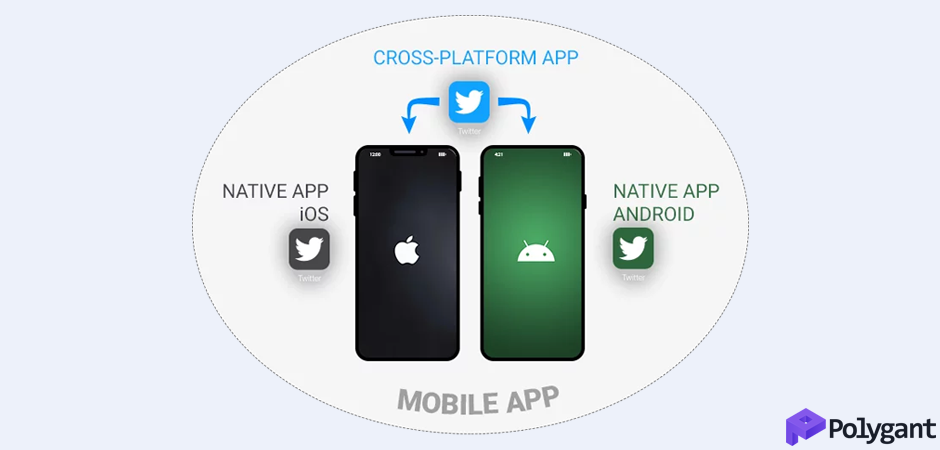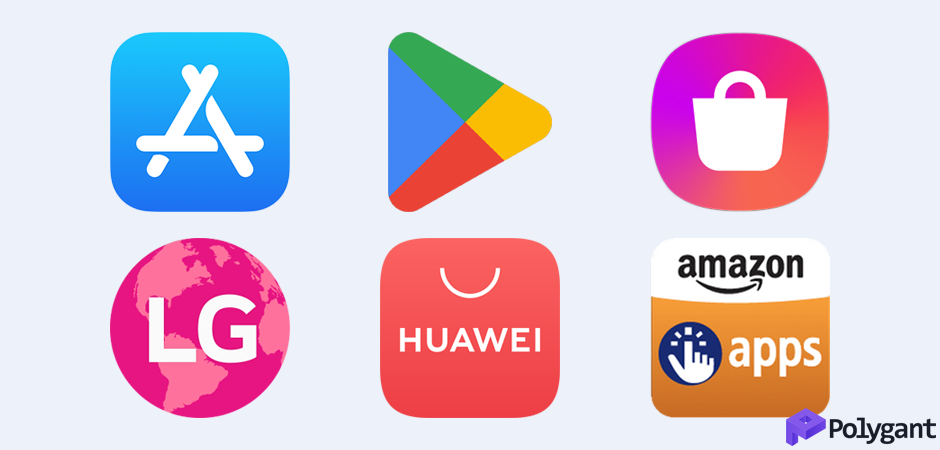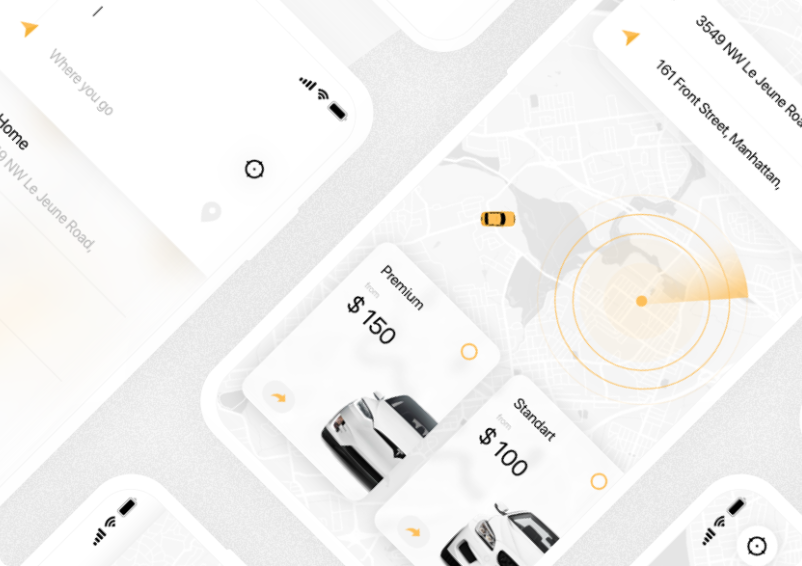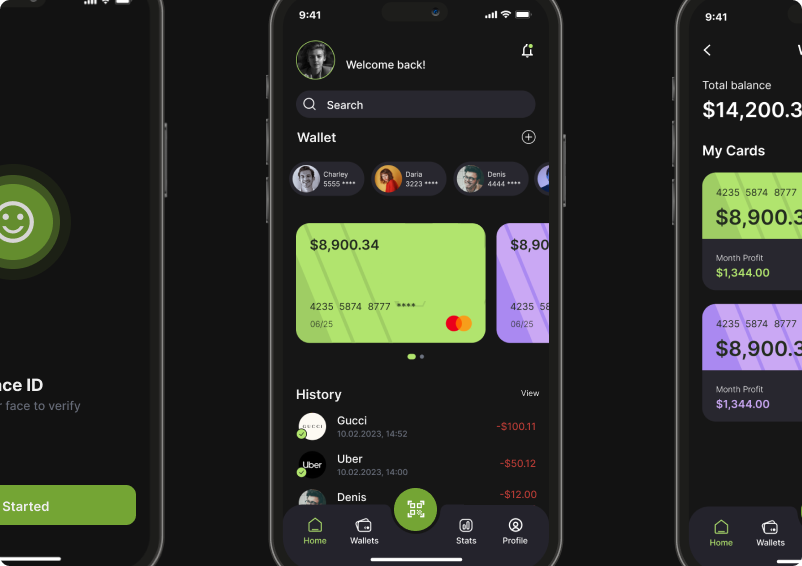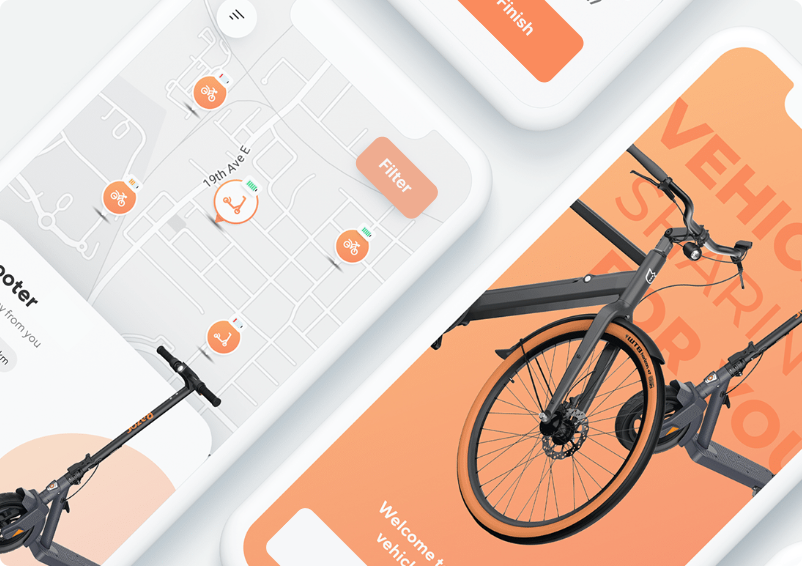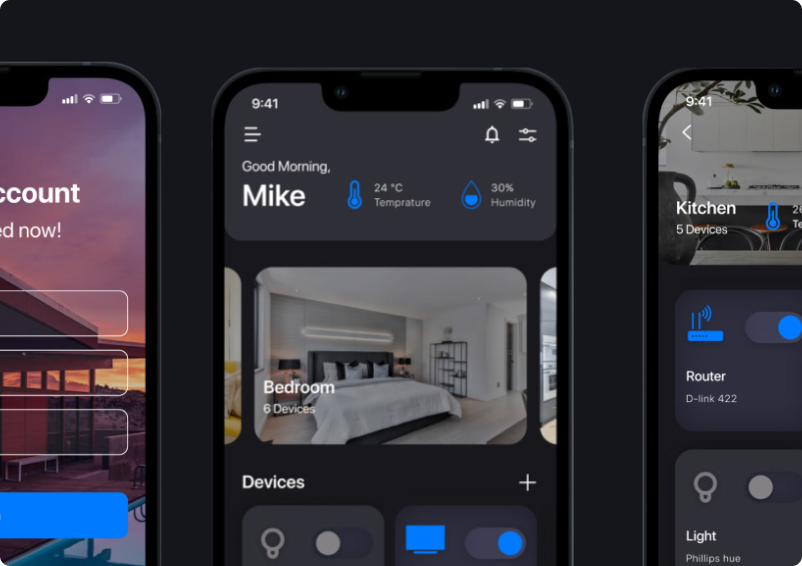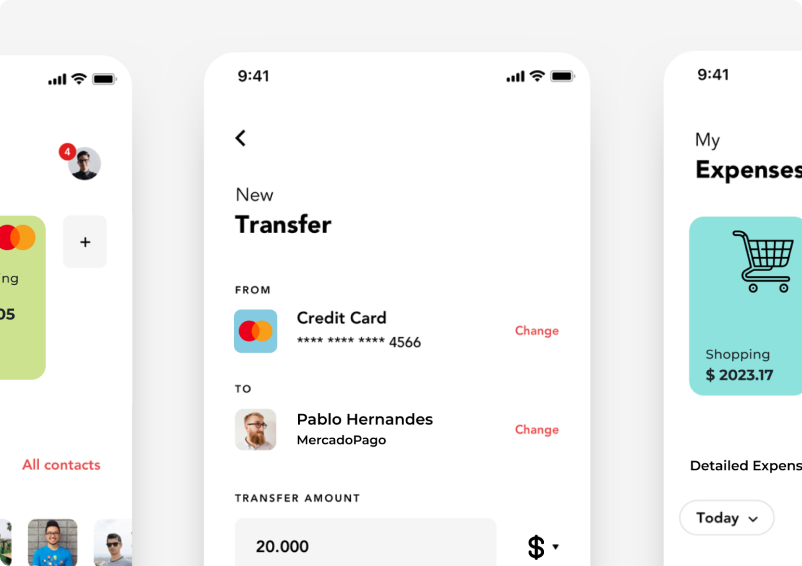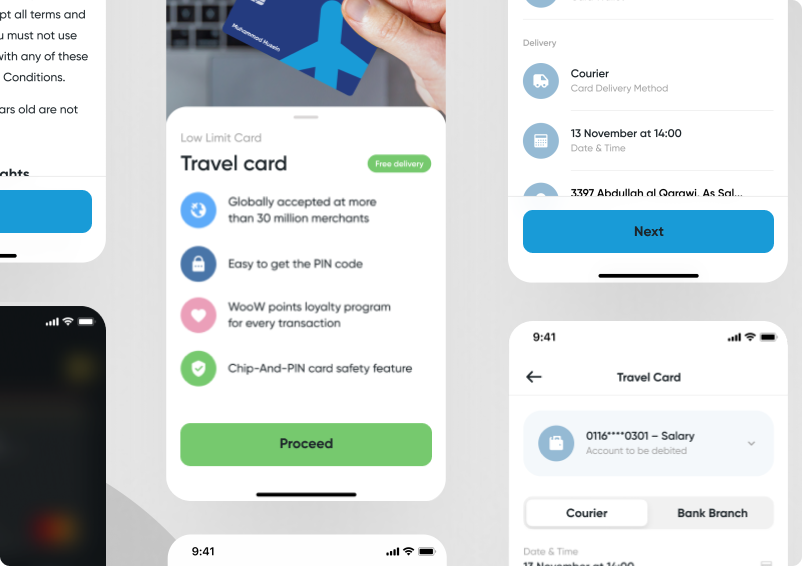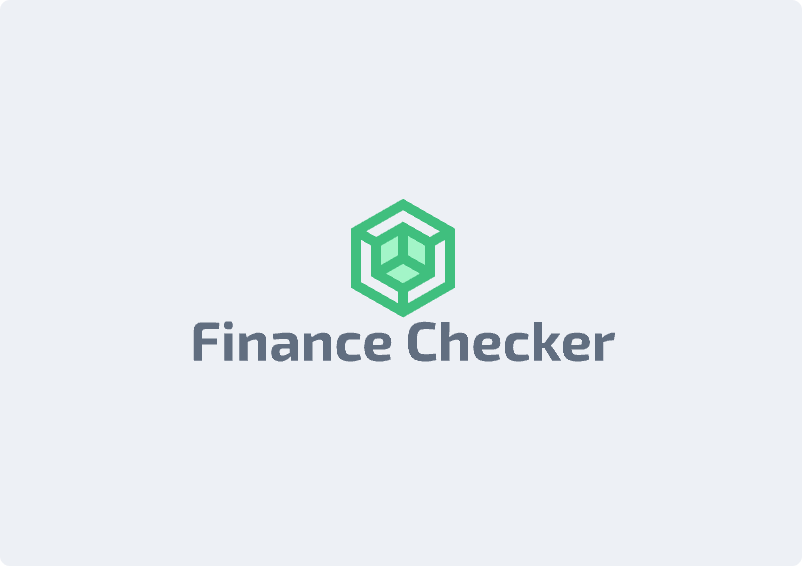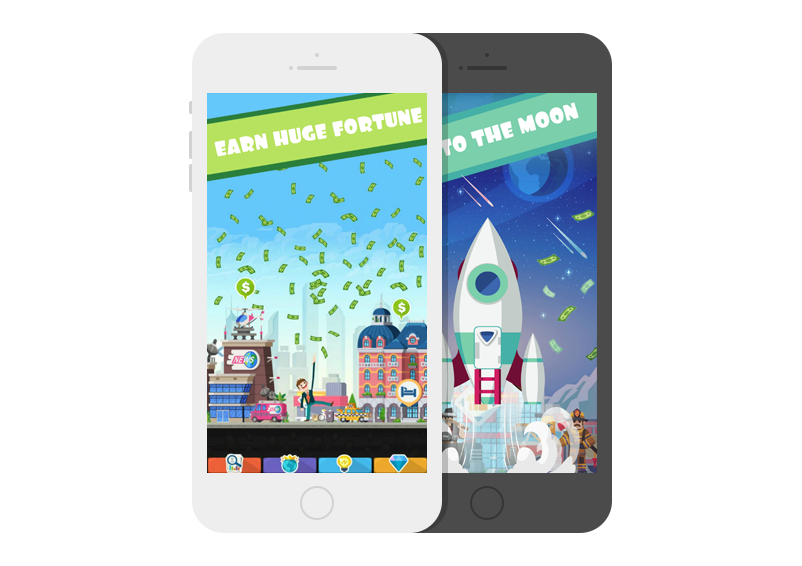Mobile App Development Services
We develop cool mobile apps for iOS and Android using cutting-edge technology, tailored to the specifics of your business. We provide full-cycle development services, from evaluation to implementation and post-launch maintenance. Order mobile apps, including for mobile banking, foodtech, and logistics, as well as crypto wallets, mobile games, messaging apps and more.
We thoroughly analyse and work out the requirements before starting work, develop an MVP in the shortest possible time, and lay the possibility of scaling. We can work with a high load, up to 20,000 RPS and above. We use both native development in Swift, Java, Kotlin, and cross-platform development in Flutter.
We deliver results before deadlines, listen and hear our customers, as well as offer optimal solutions for the tasks and goals set.
Designing and developing mobile apps is a challenging task that requires time, skills, and sufficient budget. Even with an experienced team, there is no guarantee that the end product will prove worthwhile. There are millions of applications available for any kind of mobile device today, and standing out amongst these is no easy feat. Every day they are released by hundreds; some become popular and profitable, while many never even reach beyond a narrow circle of users.
Today, a person spends an average of 5 hours daily on their smartphone. The current habit of people can be profitably monetised by building a business around it. A mobile app is able to advertise products, study the target audience, analyse consumer behaviour, and enhance the company image.
What a mobile app is
In 2025, the number of smartphone users exceeded 7 billion. Every year, they spend over $400 billion on new devices. For each, applications are installed that make life easier by helping to calculate, communicate, order a taxi or food.
A mobile app is an application software that is developed for smartphones and tablets with various operating systems: iOS, Android, Tizen, KaiOS, Harmony OS, etc. It often requires internet access when connecting to remote resources.
Mobile operating systems
A mobile operating system (OS) is a software package that enables smartphones, tablets, smartwatches, and fitness trackers to manage device resources and interact with the user. Most OSs only run on certain hardware. For example, iOS is designed for iPhones, while Android is fit for almost all other smartphones. In 2025, they continue to hold their positions:
In most cases, Samsung installs the latest versions of Android onto its smartphones. However, the company has its own OS, Tizen. It replaced the discontinued projects LiMo, Bada, MeeGo. For a while, low-cost smartphones and tablets for markets in developing countries were released with Tizen. It was later adapted for smartwatches and TVs as well.
Few people know about KaiOS, even though it has already become a second-tier leader. This one is a Linux-based fork of Firefox OS designed specifically for low-cost devices. Even though Google released Android Go (an optimized version of Android) for entry-level devices, KaiOS remains the preferred OS in this area.
Categories of useful apps
Given the current diversity in the market, it is difficult to make an accurate classification. However, we can conditionally highlight applications required as helpful tools. Although, with proper development and promotion, a mobile app can become a standalone business project.
For business
Depending on their function, there is a wide range of specific and multipurpose applications created with businesses in mind. Businessmen tend to value all-inclusive tools that help them easily manage their business on the go and optimize their work process. For example, they opt for applications that can:
- Manage files and documents
- Sort, store, and transfer data
- Provide information on taxes and laws
- Help with schedule planning and task management
- Manage personnel and accounting processes.
For marketing
Every company needs feedback from its clients and partners. Uncover the interests of your target audience by turning them into users of your app. Even simple promo applications can advertise new products attractively. Equip your marketing team with tools that help them do the following:
- Fill blogs and online communities with content
- Promote posts on social media
- Collect statistics and perform analytics
- Monitor brand mentions
- Send newsletters via different communication channels.
For personal use
The popularity of such applications is achieved by having features that are useful to people. Your company can promote its brand through a non-commercial product, using it for marketing purposes. By giving the world something it needs, you will gain universal recognition. For example, these applications will make your company a personal assistant:
- Educational apps, apps for mastering skills or learning languages
- Converters, meters, counters, trackers
- Motivation, dietary, and fitness apps
- Personal finance management systems
- Task and shopping planners.
Applications are developed around specific needs. When looking to create an application for professional or advertising activities, the resulting product will depend on the specifics of your business. However, in recent years, it is less often the case that an app is created to supplement a business, but instead, the business is built around the app.
We are very interested in projects like this, especially if they are large-scale and intended for the international market. Contact us on Telegram to order a mobile app that will take over the world.
The purpose behind mobile app development
Each application is targeted at a specific audience and monetised appropriately. To make your app popular and profitable, you first need to find out the following:
- What kind of users may be interested in the app and what country they are from. What purchases users will make or what kind of advertising they will respond to. What they will get in return for the time and money they spend.
- What features need to be implemented. Any product can generate revenue in the long run, but initially the number of features and the complexity of implementing them will affect the cost of developing a mobile app.
- What advantages will make your product stand out in the market. When working on your model, think of killer features that your competitors don’t have.
The benefit depends on the activities of the company and what they intend to achieve. Startups will be able to conveniently notify investors on current achievements, while existing companies will use applications to consolidate their brand image. Commercial projects will be able to sell ads or products.
Mobile app development technology
Early on, there were two technologies for creating a mobile app: native and cross-platform. Today, a new one—progressive—has been added.
Native mobile app development is the creation of separate applications for each platform. That is, one is being developed for iOS and another one for Android. Then they are uploaded to different stores, which are Apple App Store and Google Play, respectively. The advantages of native apps:
- Advanced design options
- Support for all smartphone features, such as access to a camera or geodata, push notifications, priority updates
- A fast and responsive interface.
Illustrative examples are Hive, Mint, Pokémon Go, Tesla, Twitter, Waze.
Read more about iOS development and Android development on their respective pages.
Cross-platform mobile app development involves creating a common code base for two platforms, with further translation of the code on each OS via an intermediate layer. The advantages of cross-platform apps:
- A single code base, correct operation on all platforms.
- Simplifying logic, reducing error probability.
- Reduced development costs if no separate customisation for each platform is required. At the same time, the logic will be simple, and the user interface will be minimalistic.
A progressive web application (PWA) is a hybrid that combines the best qualities of a mobile website and a native app. The advantages of a PWA:
- No need for intermediaries such as stores
- Development costs are lower than those of native and cross-platform.
Development trends
Before embarking on development, clarify the purpose of creating a mobile app so that you know what features and what kind of interface are in demand from your audience. If the choice is difficult, look at what trends are prevailing in the development market. In 2025, the following applications are in demand:
- Apps based on blockchain technology
- Apps based on artificial intelligence
- Apps with chatbots
- Apps with augmented/virtual reality
- Apps for the internet of things
- Apps facilitating mobile payments, transfers, and money storage.
The functional piece may be influenced by new trends in user interface design:
- Buttonless design
- Flat design
- Fluent design
- Material design
- Neumorphism.
After that, you can already write or order the terms of reference for the mobile app development. From there, your project will begin to be built in the form you have indicated.
Mobile app stores
According to Statista, revenues of all mobile apps reached $476 billion in 2024. This amount was made up of:
- $265.8 billion from in-app advertising
- $204.9 billion from in-app purchases
- $5.3 billion from app sales.
Such indicators are achieved through stores, or digital distribution platforms. These play an essential role in any application’s promotional campaign. With this in mind, let’s have a closer look at them.
Apple App Store
Apple was the first company to create a store. At the time of its release in July 2008, it was still part of the iTunes Store. Since then, it has become the principal place for iOS users to find applications.
The App Store offers over 2.2 million apps for iPhones, iPads, Apple Watches, Apple TVs. By listing on the App Store, you are sure to satisfy your audience and attract new users.
Google Play
Google created its own store under the name of Android Market in October 2008. After rebranding in March 2012, it became Google Play, although it is still aimed at the entire Android device market.
Google Play offers over 3.5 million apps. Despite the built-in search engine, brands sometimes find that their products disappear from search results or appear for irrelevant queries. In any case, by listing on Google Play, you can count on your Android audience or customers to be satisfied.
Alternatives
Many mobile device manufacturers have found that their own stores with smartphone apps can help them reach their audiences more closely. Renowned giants from South Korea were amongst the first.
Samsung Galaxy Store
In September 2009, Samsung Electronics launched the Samsung Apps service, which in March 2019 was renamed the Galaxy Store. The company pre-installs the mobile version of its store on all manufactured Android devices. The web version of the store contains products not only for Android OS but also for Bada, Tizen, Windows Mobile.
LG SmartWorld
In October 2011, LG Electronics launched the SmartWorld store. This company also pre-installs its store on its own smartphones. The manufacturer also created a separate version for LG TVs called Content Store.
Huawei AppGallery
Huawei Technologies launched its store in 2011. It first focused on the Chinese market, and in April 2018, it opened to the whole world. While the store is localised in 9 languages, most developers only place their products there in Chinese.
Amazon Appstore
Amazon is keeping up with its competitors. In 2011, the company created its own store as an app for Android and Fire OS, and in 2014, it made a version for BlackBerry 10. This solution saved clients from searching for digital products in third-party stores.
App Store and Google Play rankings
The App Store and Google Play are the largest distribution channels for native apps that can enable your company to reach a global audience. However, as competition grows inside the stores, it becomes increasingly difficult for developers to ensure the visibility of products hosted there.
Launching a product with these major digital distribution platforms may prove an efficient market entry strategy if you want to reach a specific audience. Knowing the target audience of the store will allow you to promote the created new product with confidence that there will be interested users.
Analysts from Business of Apps ranked the most downloaded apps for 2024. We would like to highlight the top 5 for both stores.
| Top | By downloads on App Store (MM) | By downloads on Google Play (MM) |
|---|---|---|
| 1 | TikTok (186) | Instagram (657) |
| 2 | Temu (138) | TikTok (587) |
| 3 | Threads (133) | Facebook (492) |
| 4 | ChatGPT (117) | WhatsApp (430) |
| 5 | Google (112) | Telegram (327) |
Order mobile app development
If you can’t write the code on your own, find a professional engaged in mobile app development. At this stage, you may have a lot of questions. Which specialist should you choose? Do you need to hire staff? Is it better to hire individual freelancers who work remotely? Or better entrust this task to an experienced company that will develop a turnkey mobile app?
Setting up a full-time dev department on your own may be impractical. Searching for qualified freelancers on marketplaces, checking their competencies, and then constantly monitoring their work is also a tedious process. When you need a serious approach, quality shouldn’t be neglected and the work shouldn’t be delayed for months. Then it is better to contact Polygant, a mobile app development company.
How much it costs to develop a mobile app
Only a qualified team can tackle the complex process of mobile app development and complete tasks without missing deadlines. As experienced professionals, we will create a custom business model, design a friendly user interface, and help with placing the application in stores.
Developing a mobile app from scratch involves the following stages:
- Writing terms of reference (if you don’t already have them) — 18+ hours.
- Business analysis and specification — 20+ hours.
- Mobile app design (UI and UX) — 35+ hours.
- Back-end development — 40+ hours, depending on the required functionality of the app and the number of platforms.
- Front-end development — 30+ hours.
- Testing — 20+ hours, depending on the number of platforms and functionality.
Based on these estimates, the approximate cost of an MVP starts at $20,000. Further expense will depend on the complicating factor. Please note that once the mobile app is developed, it needs to be maintained, and this service cost isn’t included in the initial development cost.
Further support after release
It’s impossible to create the perfect mobile app in one go. Therefore, programmers use feature-driven development to quickly provide core functionality. Agile methodology significantly speeds up the release, helping companies adapt to a changing market.
After the launch, if the product proves successful, you need to track reviews, collect error-related information, and analyse problems. Based on these, it is necessary to improve the existing features and introduce new ones. After the official launch, maintenance and support are all your app needs.
If you got your initial results with Agile, maintenance costs may be higher than the cost of prototyping a mobile app. Specialists prefer this methodology when it is necessary to deliver a product, proving or refuting the marketing hypothesis.
If you pick Waterfall methodology, you can calculate the estimated annual maintenance costs as a fixed percentage, which is approximately 15–20% of the cost of developing a mobile app. Large companies opt for Waterfall because their business processes are documented and their management team can develop marketing, management, and production plans.
We are experienced developers
Here at Polygant, we have been professionally developing bespoke mobile apps for 10 years. We are ready to create a mobile app that will help customers find you.
We also know how to develop mobile games and secure messaging apps. And if you already have an application, our information security specialists can test it for penetration.
No matter the circumstances of your project, we always do our best. Make a request via the contact form, and we will give you a quote for your mobile app development project.

 Telegram
Telegram 